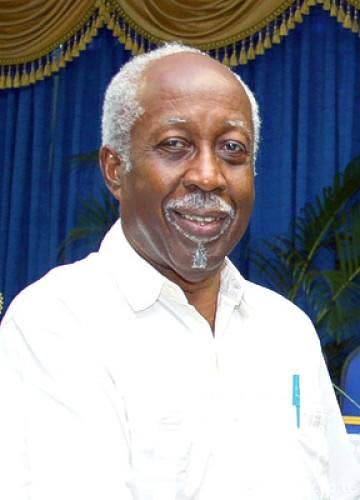The poet and the poll

REGINALD DUMAS
THIS ARTICLE was intended to be only about Guyana, but wider considerations kept intruding. These days, what surfaces frequently in my mind is The Second Coming, WB Yeats’ famous poem inspired by Christian theology and the devastation of the First World War.
Part of the first stanza reads: “Things fall apart; the centre cannot hold/ Mere anarchy is loosed upon the world/ The blood-dimmed tide is loosed, and everywhere/ The ceremony of innocence is drowned;/ The best lack all conviction, while the worst/ Are full of passionate intensity.”
Yeats wrote those words a little more than a century ago. You judge whether they still have any relevance today, not necessarily from a Christian perspective – I’m a lapsed Christian myself – but more from an examination of what is happening around us.
Ethically, the world isn’t doing well. Human greed has, if anything, been intensifying, and the chasm widens between privilege and penury; inequality and inequity are now virtually de rigueur. Control by the few is increasingly seen as a satisfactory substitute for the welfare and opinions of the majority; “good governance” is a phrase to which obeisance is ritually paid, not a goal to be pursued, achieved and implemented. Ideological and religious battles rage, as do military confrontations. Racial contempt expands:
Amerindians yesterday, Chinese and Syrians today, blacks the day before yesterday, yesterday and today. The environment would make a comeback if allowed, but the dedicated pursuit of universal hegemony, and the operation of government neglect and idiocy, block its path. Women remain objects with p------. Are the effects of the coronavirus (the oil price collapse included) likely to aggravate these negatives? I have my fears.
But what of Guyana? Since my April 6 article, the atmosphere has, if I interpret correctly from this distance, become even more poisonous. As I said previously, power is the driving force, and power derives from office: how to get it, how to keep it.
The Granger government refuses to budge, while the Opposition presidential candidate, Irfaan Ali, styles himself “president-elect.” (Mind you, the national vote recount has not yet begun.) But the prospect of the oil riches over which both gladiators are salivating has, in this covid19 age, receded considerably. And all sorts of other things are happening.
The chief election officer, Keith Lowenfield, says mysteriously that instead of the usual statements of poll, the Elections Commission (Gecom) will be developing a similar document to record the votes tabulated. He then announces that it will take 156 days – five months! – to carry out the recount.
The Opposition promptly and indignantly rejects this, which so hurts the feelings of the Gecom secretariat staff that they issue their own media release deploring the “public ridicule” of Lowenfield’s proposal. For its part, the Stabroek News calls for Lowenfield’s dismissal, if he persists, and for an investigation. He promises a revised plan.
There are rumours of internal government dissension. The Gecom chairman, retired Justice Claudette Singh, is hauled over the coals for being “feckless” – inefficient and lacking vitality. Much worse, the Opposition People’s Progressive Party/Civic (PPP/C) is accused of plotting to assassinate her. We hear that the US has threatened sanctions against Guyana, and that a US lawyer hired by the Granger administration worked several years ago with Sudan when that country was under US sanctions and listed as a sponsor of terrorism. At the same time, we also hear that the US has been provided with “evidence linking (the PPP/C) to international terrorism.”
Bruce Golding, the former Jamaica PM who led the OAS election observer mission to Guyana, is savaged as an ally of the Opposition Leader, Bharrat Jagdeo, and as “a panhandler with no decency or integrity who (would) sell his mother for a small change.” But on April 15 his mission calls for recount procedures that are “transparent and consistent.”
In an obviously racist allusion, the returning officer for the disputed Region 4, Clairmont Mingo, is termed a “Mandingo” on whom the government should not have relied to “(bring) home the prize for them,” since he is merely “a circus acrobat.”
Caricom is invited back for the national recount. But a Guyana court has ruled that Caricom cannot legally “supervise” the recount, so what role is it to play?
PM Rowley says the situation disappoints and worries him; he is “getting a feeling that this is not going to end well.” I share his sentiments. Things in Guyana are falling apart, though anarchy has so far, thankfully, been avoided. Innocence vanished decades ago in the waters of the Demerara and the Essequibo. The best are earnest and patriotic, but ignored. The worst are full of passionate, partisan, racial intensity. It doesn’t look good.

Comments
"The poet and the poll"